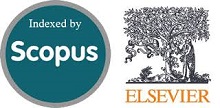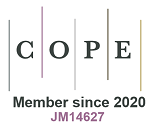Daoism as the Philosophic Foundation of Chinese Economic Reform: a Conjecture
Abstract
The reforms of Deng Xiaoping and the opening of China in the 1970s were predicated on something called “socialism with Chinese Characteristics”. Deng never explained its meaning in detail. This paper offers a conjecture suggesting that Daoism is the philosophical foundation of Chinese economic reform. Daoism is eminently Chinese and through the concepts of wu wei, yin/yang, qi and others from The Tao Te Ching, the Zhuangzi, and Pheasant Cap Master it offers the flexibility to organize markets within the Chinese context. The paper suggests how a Daoist philosophic foundation supports China’s rise both economically and politically. It concludes with the observation that China’s long term objective may be something like Zhuangzi’s and Pheasant Cap Master’s unity and that the West’s “end of history” may have past while the Chinese may have just begun.
(B)y Marxism we mean Marxism that is integrated with Chinese conditions, and by socialism we mean a socialism that is tailored to Chinese conditions and has a specifically Chinese character….Socialism means eliminating poverty. Pauperism is not socialism, still less communism (Deng Xiaoping, Socialism with Chinese Characteristics [1]).
…China’s rise is not the rise of an ordinary state, but the rise of a country, sui generis, a civilizational state, a new model of development and a new political discourse which questions many of the Western assumptions about democracy, good governance and human rights, and all this may usher in a wave of change unprecedented in human history. Zhang Weiwei, The China Wave [2]).
Keywords
References
Deng Xiaoping, Socialism with Chinese Characteristics, June 30, 1984 http://www.china.org.cn/english/features/dengxiaoping/103371.htm, downloaded 3/13/18.
Zhang Weiwei, “The China Wave: The Rise of a Civilizational State.” (2012). World Century, Hackensack, NJ.
Browne, Andrew, “The West Faces Up to Reality: China Won’t become ‘More Like Us.” The Wall Street Journal. (December 12, 2017). https://www.wsj.com/articles/the-west-gets-real-about-china-1513074600 downloaded 7/18/2017.
Campbell. Kurt M. and Ely Ratner, “The China Reckoning: How Beijing Defied American Expectations.” Foreign Affairs, March/April (2018): 60-71.
Schell, Orville and John Delury, “Wealth and Power: China’s Long March to the Twenty-First Century.” (2013). Random House, NY.
Wang, Zheng, Never Forget National Humiliation: Historical Memory in Chinese Politics and Foreign Relations. (2012) Columbia University Press, NY.
Mao Zedong, “The Chinese People Have Stood Up,” https://www.marxists.org/reference/archive/mao/selected-works/volume-5/mswv5_01.htm. downloaded: 7/19.2018.
Fukuyama Francis, “The End of History?” https://www.embl.de/aboutus/science_society/discussion/discussion_2006/ref1-22june06.pdf downloaded, 3/18/18.
Lee, Terence, “The politics of Civil Society in Singapore.” Asian Studies Review, 26 no. 1 (March 20): 97-117. Doi:10.1080/10357820208713332.
Qing, Jiang. “From Mind Confucianism to Political Confucianism.” The Renaissance of Confucianism in Contemporary China (2011): 17–32. Doi: 10.1007/978-94-007-1542-4_2.
Peck, Jamie and Jun Zhang, “A Variety of Capitalism…with Chinese Characteristics.” Journal of Economic Geography, 13, no. 3, (May 2013): 357–396. Doi: 10.1093/jeg/lbs058.
Chen, Ming-jer, “Transcending Paradox: The Chinese “Middle Way” Perspective.”. Asia Pacific Journal of Management. 19, no. 2-3 (2002): 179–199. Doi: 10.1023/A:1022024730957.
Mao Zedong, “On Practice: On the Relation between Knowledge and Practice, Between Knowing and Doing,” (1937). https://www.marxists.org/reference/archive/mao/selected-works/volume-1/mswv1_16.htm, downloaded 6/12/18.
Vogel, Ezra F., Deng Xiaoping and the Transformation of China. (2011) Belknap Press of Harvard University Press, Cambridge, MA.
Djilas, Milovan, “The New Class: An Analysis of the Communist System.” (1957} Frederick A. Praeger, NY.
Kuhn, Robert Lawrence, “How China’s Leaders Think: The inside Story of China’s Reform and What this means for the Future.” (2010) Wiley, Hoboken, NJ.
Deng Xiaoping, “Emancipate the Mind, Seek Truth from Facts and Unite as One in Looking to the Future,” Deng Xiaoping: Speeches and Writings in Speeches and Writings, Robert Maxwell, ed. (1984) Pergamon, NY.
Deng Xiaoping, “Use Intellectual Resources of Other Countries and Open Wider to the Outside World, July 8, 1983. https://archive.org/stream/SelectedWorksOfDengXiaopingVol.3/Deng03_djvu.txt downloaded 3/20/18.
Friedman, Milton, Capitalism and Freedom. (2002). The University of Chicago Press, Chicago, IL.
Miller, James, “Daoism and Development,” in, Clarke, Mathew ed. (2013), Handbook of Research on Development and Religion. 2013). Edward Elgar, Northampton, MA: 113-123.
Graham, A.C.,” Disputers of the Tao: Philosophic Arguments in Ancient China. “(1989). Open Court, Chicago, IL
Kohn, Livia, “Daoism and Chinese Culture.” (2002). Three Pines Press, St. Petersburg, FL.
Liu Xiaogang, Naturalness (Tzu-jan), “The Core Value in Taoism: Its Ancient Meaning and Its Significance Today,” in Lidia Kohn and Michael Lafargue, eds. Lao-tzu and the Tao-te-Ching, (1998). State University of New York Press, Albany, NY.
Hayek, F. A, “The Road to Serfdom.” (1994). The University of Chicago Press, Chicago, IL.
Zhuangzi, “The Essential Writings with Selections from Traditional Commentaries” Brook Ziporyn, Trans. (2009). Hackett Publishing Co., Indianapolis, IN.
Chan Wing-Tsit. “A Source Book in Chinese Philosophy.” (1963). Princeton University Press, Princeton, NJ.
Waley, Arthur (The Way and Its Power: A study of the Tao Te Ching and Its Place in Chinese Thought. (2016) Martino Publishing, Mansfield Centre, CTR.
Clark, Duncan, Alibaba: The House that Jack Ma Built. (2016). HarperCollins, NY.
Schwartz, Benjamin I (1985), “The World of Thought in Ancient China.” (1985). The Belknap Press, Cambridge, MA.
Moeller, Hans Georg, “The Philosophy of the Daodejing. (2006). Columbia University Press, NY.
Coase, R. H., “The Firm, the Market and the Law.” (1990). The University of Chicago Press, Chicago, IL.
Bach, Johnathan “Shenzhen: From Exception to Rule,” in O’Donnell, Mary Ann, Winnie Wong, and Johnathan Bach, “Shenzhen: China’s Post-Mao Experiment from Special Zone to Model City,” (2017) The University of Chicago Press, Chicago, IL.
Dunne, Michael J., “American Wheels, Chinese Roads: The Story of General Motors in China”. (2011). John Wiley and Sons (Asia) Singapore.
Stevenson, Alexandra, “China’s Communists Rewrite the Rules for Foreign Businesses,” The New York Times, (April 13, 2018).
https://www.nytimes.com/2018/04/13/business/china-communist-party-foreign-businesses.html, downloaded 6/18/18.
Kynge, James, “Trump Forgets that US Companies in China are doing a roaring trade”. Financial Times,
https://www.ft.com/content/170b7016-746c-11e8-aa31-31da4279a601 downloaded 6/20/18.
Wells, Marnix,, “The Pheasant Cap Master and the End of History.” (2013). Three Pines Press, St. Petersburg, FL.
U.S. Dept. of State: https://www.export.gov/article?id=China-State-Owned-Enterprises. Downloaded: May 30, 2018.
DOI: 10.28991/esj-2018-01144
Refbacks
- There are currently no refbacks.
Copyright (c) 2018 Edward J Romar






